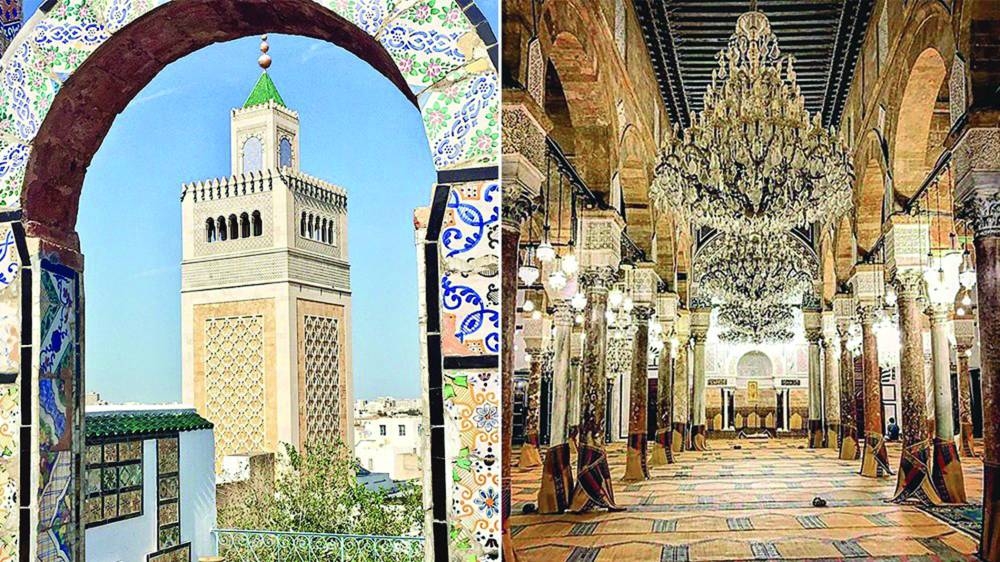The Zitouna Great Mosque is one of the oldest and most famous mosques throughout the Islamic world. It was founded in 116 AH (734 CE) by Obeid Allah Ibn Al-Habhab. The mosque is renowned as a place of worship and, more particularly, for the leading and long-standing scientific and cultural role it has assumed since the early second century of Hegira.
Dispensing teaching of Islamic sciences since the year 120 AH (737 CE), the Zitouna Mosque is the oldest Arab-Islamic university and has continuously performed its educational role for 13 centuries. This original fact was pointed up by the historian Hassan Hosni AbdulWahab who asserted: “The Zitouna Mosque is historically the earliest and the oldest teaching establishment in the Arab world.”
In its double capacity as a university and a place of worship, the Zitouna Mosque experienced times of prosperity until the end of the reign of the Hafsids (634-981 AH/1237-1573 CE). According to the scholar Abdul-Rahman Ibn Khaldun—an alumnus of the Zitouna—the latter ranked above any other teaching establishment in the Islamic Maghrib in the 14th and 15th centuries (CE). The teaching at the Zitouna encompassed different syllabuses, including Islamic religious and literary subjects, philosophy, intellectual sciences, mathematics, medicine, and astronomy.
Per the general purposes fixed for higher education and scientific research, and in consideration of the competence vested in universities concerning the national identity and consciousness of being rooted in the Arab-Islamic civilisation and in order to honor the obligation of contributing to further developing human civilization, the Zitouna University seeks to reach the following targets.
Secure an academic training which enables the learner to seek in the values of Islam - the latter being a faith, a thought, and a civilisation - what constitutes a means to upgrade the individual to the status of a free and responsible person capable of reconciling his commitments to the noble purposes of religion with the need to meet the requirements of existence appropriately. Strengthen the belief that the Islamic thought in its various aspects results from the action performed by generations of creative and innovative scholars.
Thus, belonging to the Arab and Islamic civilisation urges the individual to acquire the necessary elements for developing his genius and work, at best, for boosting the progress of knowledge, practise Ijtihad, and consequently perpetuate the accomplishments of the prominent figures of this civilisation.
It also reinforces the awareness that the Zitouna University is a symbol that epitomises a whole school of thought and faith-based on everlasting tolerance, on the principle of renewal of religion and history and a yearning for implanting an inventive spiritual life and an untiring work for the good of humankind. Thus, providing the learner with an opportunity to acquire the capacity for interacting with other cultures and empower him to enrich the Islamic and human thought and reconcile the innovative genius with the glorious heritage, by enabling him to control the various branches of modern knowledge and have direct access to the achievements of universal thought.
https://educativ.net/universities/tunisia/university-ez-zitouna/

